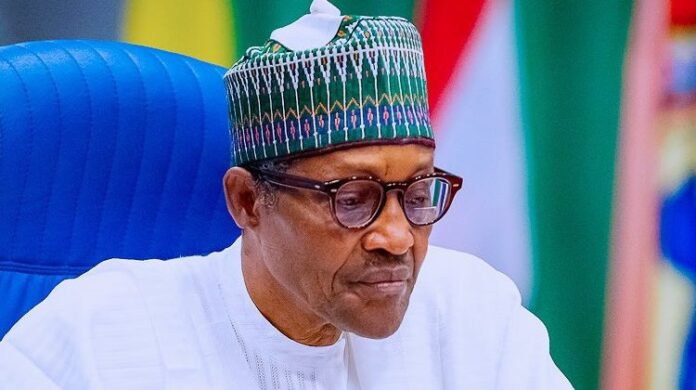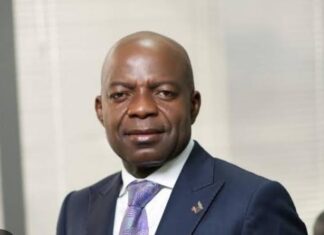By Jeph Ajobaju, Chief Copy Editor
Muhammadu Buhari’s borrowings to patch up Nigeria’s finances shot up the country’s debt to the World Bank and African Development Bank (AfDB) alone from $7.14 billion on June 30, 2015, to $14.35 billion on March 31, 2021.
Data obtained from the Debt Management Office (DMO) shows that, in the six years, the debt rose by $7.11 billion, an increase of 98.48 per cent, per The PUNCH.
By June 2015, Abuja had borrowed $6.19 billion from the World Bank, $6.09 billion of it from the International Development Association (IDA), an arm of the World Bank that offers concessional loans to the poor and fragile countries.
Another member of the World Bank Group, the International Fund for Agricultural Development (IFAD), had a commitment of $94.80 million in Nigeria.
Also by June 2015, the AfDB commitment to the country was $946.52 million, comprising loans from internal bodies such as AfDB ($350 million) and African Development Fund (ADF) ($596.53 million).
By March 2021, Nigeria’s debt to the World Bank had risen 86 per cent from $5.32 billion to $11.51 billion. This includes loans from IDA ($11.10 billion) and International Bank for Reconstruction and Development (IBRD) ($410.23 million).
According to DMO data reported by The PUNCH, with a commitment of $11.51 billion, the World Bank is owed 35.02 per cent of Nigeria’s foreign debt of $32.86 billion as of March 31.
Nigeria obtained from AfDB a loan of $1.59 billion, Africa Growing Together Fund ($0.21 million), and ADF ($942.51 million).
This brought AfDB loans to $2.74 billion or 8.3 per cent of Nigeria’s external debt.
Most of the loans from the World Bank and the AfDB are tied to programmes or infrastructure projects.
Some loans obtained from the World Bank and their purposes are:
December 14, 2020 ($1.5b)
· Nigeria COVID-19 Action Recovery and Economic Stimulus Programme
· State Fiscal Transparency, Accountability, and Sustainability Programme
June 27, 2018 ($775m)
· Fiscal Governance and Institutions Project
· Erosion and Watershed Management Project (additional funding)
· Polio Eradication Support Project (additional funding)
· Electrification Project
· State Fiscal Transparency, Accountability and Sustainability Project
March 23, 2017 ($200m)
· Agro-Processing, Agricultural Productivity Enhancement and Livelihood Improvement Support Project
April 14, 2017 ($150m)
· Mineral Sector Support for Economic Diversification Project
June 7, 2016 ($1.1b) – addition funding
· State Education Programme Investment Project
· Community and Social Development
· Youth Employment and Social Support
· State Health Investment Project
· Third National Fadama Development Project
· Polio Eradication Support Project
· National Social Safety Nets Project
Some loans obtained from the AfDB and their purposes are:
June 5, 2020 ($288.5m)
· Mitigation of COVID-19 impact on people and businesses
April 24, 2019 ($70m)
· Road Projects in Ebonyi State
AfDB contributed $40 million, AGTF $30 million
December 3, 2018 ($150m)
· Electrification Project
December 14, 2016 ($250m, £5m)
· ADB ($150 million)
· ADF ($100 million)
· RWSSI Grant Facility (£5 million) to finance the Inclusive Basic Service Delivery and Livelihood Empowerment Integrated Programme
December 16, 2016 ($100m)
· Rehabilitation of Kainji Hydroelectricity Plant ($80 million)
· Rehabilitation of Jebba Hydroelectricity Plant ($20 million)
Multilateral debts ($313.69m)
By March 31 2021, Nigeria’s multilateral debts totalled $313.69 or 54.26 per cent of external debt. The lenders include
· International Monetary Fund ($3.48 billion)
· Arab Bank for Economic Development in Africa ($5.88 million)
· European Development Fund ($51.33 million)
· Islamic Development Bank ($29.72 million)
· International Fund for Agricultural Development ($223.28 million)
Bilateral debts ($4.18b)
By March 31 2021, bilateral debts amounted to $4.18 billion or 12.73 per cent of external debt. The lenders include
· Export Import Bank of China ($3.40 billion)
· Exim Bank of India ($34.95 million)
· Agence Française de Développement ($486.6 million)
· Japan International Cooperation Agency ($74.6 million)
· Germany ($183.7 million)
Commercial loans ($10.67b)
Commercial loans totalled $10.67 million or 32.47 per cent of external debt. They include:
· Eurobonds ($10.36 billion)
· Diaspora Bond ($300 billion) – borrowed from Nigerians living abroad
Debt profile (June 30, 2015)
· External debt was $10.32 billion, with multilateral loans accounting for 70.11 per cent and bilateral loans 15.35 per cent.
· Only Eurobond was available as a commercial loan and it was $1.5 billion or 14.54 per cent of external debt.
Views of experts
AfDB President Akinwumi Adesina and other financial experts have criticised the huge borrowings as detrimental to the economy.
He described debts owed by Nigeria and other African countries as unsustainable when he spoke at the virtual launch of the African Economic Outlook 2021
Adesina said: “The issue of debt is so fundamental because it’s like you are running up a hill but you have a bag full of sand on your back; you can’t go far. The amount of debt that we have is not sustainable.
“The amount of debt that we have right now is about 70 to 75 per cent of the Gross Domestic Product [GDP].
“It used to be sustainable, but what is even more alarming is the structure of the debt, where the debt right now is largely in the hands of commercial creditors, almost $337 billion in terms of high creditors and those that are the private creditors without any type of securitisation for it.”













